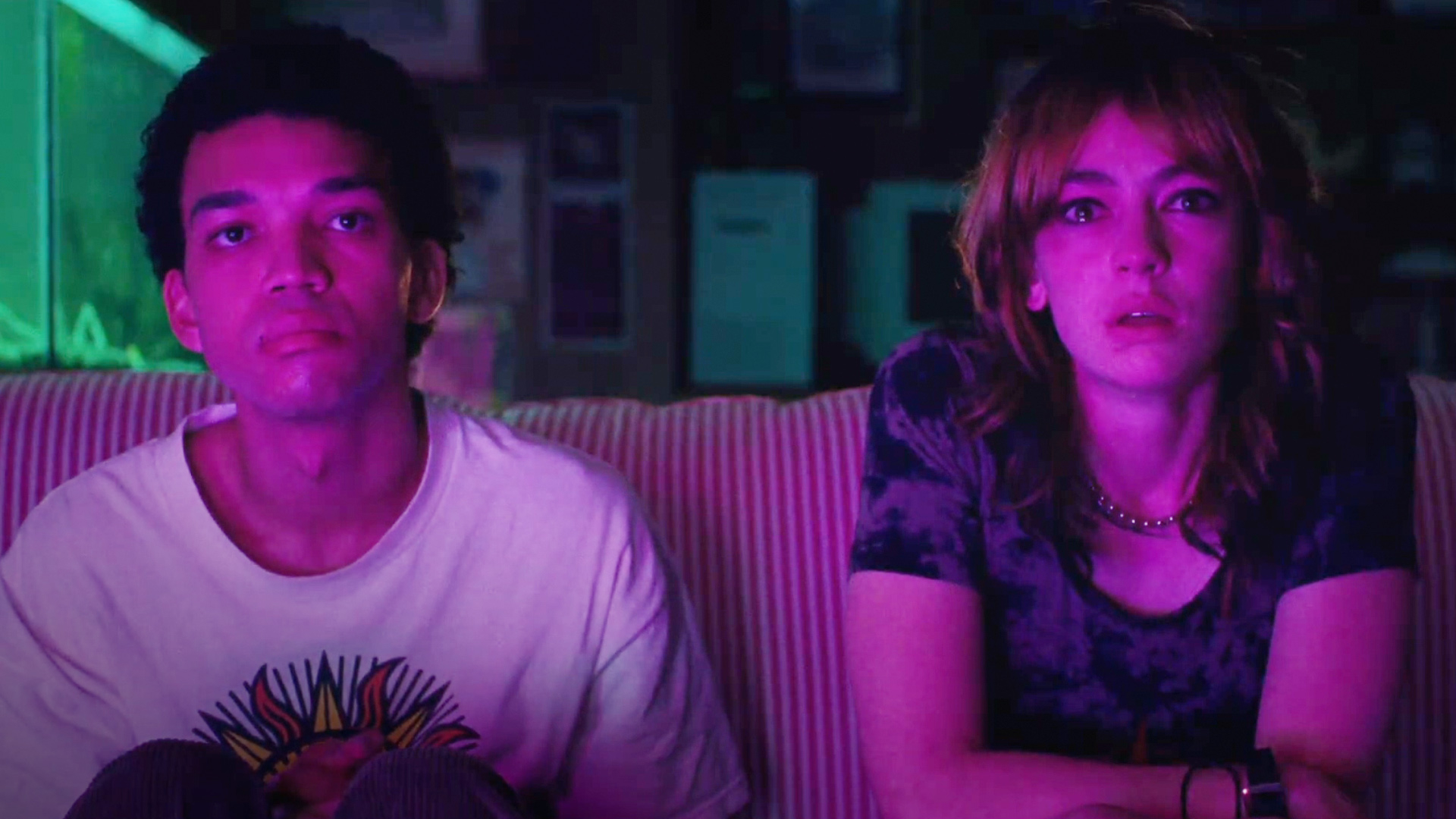
I Saw The TV Glow introduces us to young teen named Owen (Justice Smith) who is shy and timid, living a typical suburban life with his mom Brenda (Danielle Deadwyler) and strict father Frank (Fred Durst). When accompanying his mom to vote, Owen meets Maddy (Brigette Lundy-Paine), a teenage girl a few years ahead of him in school who introduces him to a mysterious late-night TV show called The Pink Opaque, a sci-fi vision of a supernatural world beneath their own. The two become friends and find solace in each other, but the line between reality and fiction begins to blur, for Maddy especially.
The structure of film isn’t entirely linear, beginning with adult Owen ruminating in front of a campfire and providing narration before jumping back to the mid-90s to his time as a young teen when he first meets Maddy. The period accurate look and appearance of The Pink Opaque is appreciated, calling to mind classic 90s teen TV fare like Goosebumps and Ghost Writer. Writer/director Jane Schoenbrun and the production design team do well in matching the aesthetic to the time period and making the show at the center of the plot feel real. The flashback storytelling structure also does well in establishing the film’s two central characters and building up their relationship and backstories, leading the audience into their arcs as they age and get more into The Pink Opaque. The chaotic home lives of Owen and Maddy contribute to their loneliness and uncertainty of where they belong which the ability to peer into their young childhoods helps to make clear.
I Saw The TV Glow is crafted as a treatise on self-discovery and feeling stifled by a world in which you don’t totally fit or feel yourself in, an allegory for gender dysphoria and transgenderism. While the film seeks to display the confusion and pain of what such isolation feels like, it does it in such an esoteric way that the message is lost in a slow moving, tedious story with characters that are difficult to connect and empathize with for viewers outside of the small group with lived experience in their shoes. This hyperspecificity in its focus and audience hampers its ability to tell an engrossing and appealing story outside of those it targets. Those with whom the film doesn’t connect will find it mostly to be a slog to watch with barely any coherence. It’s bound to be a tough watch for most, while speaking to the soul of a few others.
Image: A24

